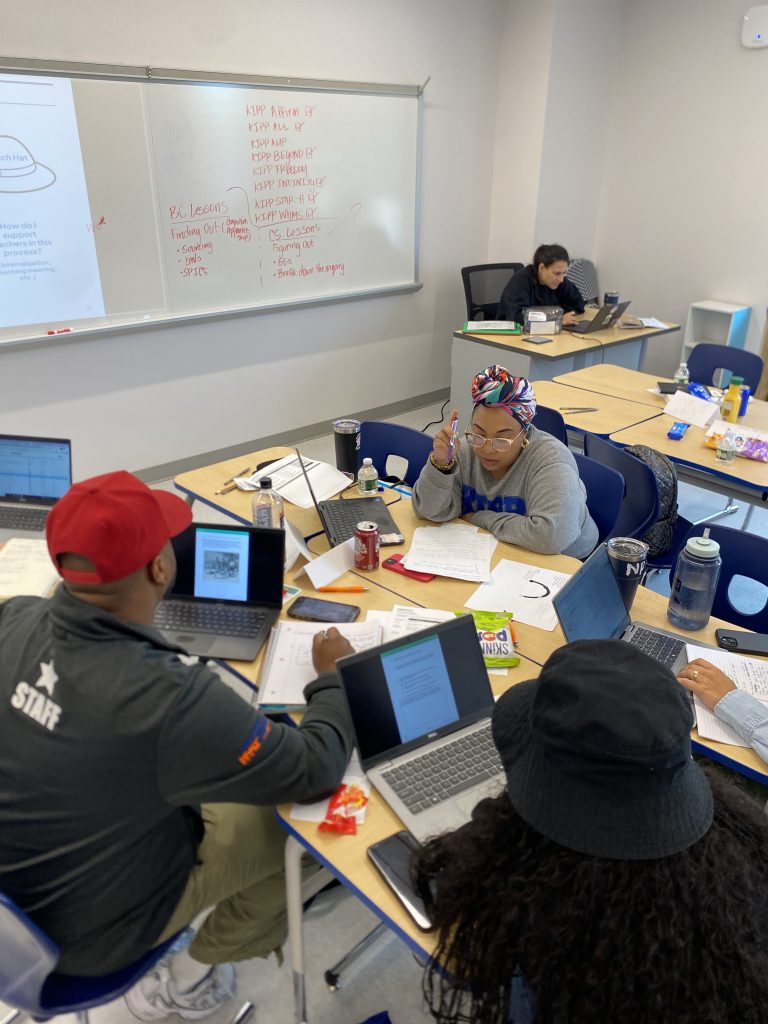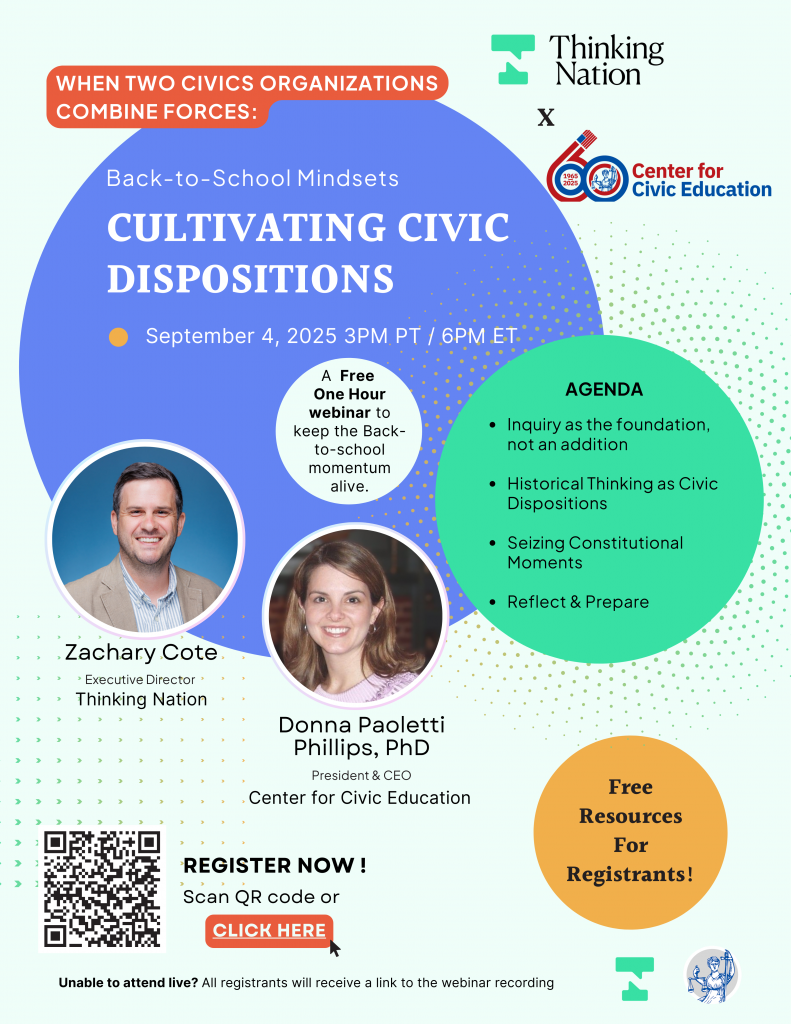And just like that, August is almost over. Honestly, I am a bit shocked. Where did the month go? Thinking Nation led its first back-to-school PD on July 31 and since then we’ve supported partner schools from coast to coast as they gear up for the 2025-2026 school year.
As I think about entering September, I want to take some time to reflect on the conversations, commitments, and mindsets that I’ve engaged with this past month.
Back-to-School PD Success
With school year momentum picking up, it is critical to remind ourselves of the foundations laid before our students came back to our classrooms.
During the week of August 4th, I had time to work with a few of our Los Angeles partners: Youth Policy Institute Charter Schools (YPICS), Equitas Collegiate High School, and Alliance College-Ready Public Schools. And then the following week, I had the privilege of working with a dedicated group of instructional coaches at KIPP:NYC. In each of these settings, we framed mindsets, set foundations and collectively cultivated the necessary dispositions for a strong start to the school year.
YPICS is one of our earliest adopters, and as their executive director, Yvette King-Berg has noted, “with the support of Thinking Nation’s resources and professional development, our school administrators are seeing more in depth, grade level writing happening in our social studies classes than in our ELA classes.” I always enjoy working with those teachers and seeing their rededication to empowering their students as historical thinkers.
Both Equitas Collegiate HS and Alliance have partnered with us (alongside Bright Star Schools) to create an LA-rooted Ethnic Studies Course that prioritizes the experiences of the students served in LA. I am incredibly excited about this project and will take more time to share why in another post.

Finally, KIPP:NYC; wow, what a dream. As one of the instructional coaches remarked after our full-day session: “Zach, you really made us think deeply all day. We are exhausted. But grateful.” We analyzed and created concept maps around historical thinking skills, engaged in sourcing protocols, and practiced formative assessments. On top of all of this, the dialogue in the room was so rich, complex, nuanced, and passionate. We challenged one another in both thinking and practice as we maintained our common aim of empowering students. It was fulfilling and uplifting.
But the work isn’t done. There is a whole year ahead.
The Danger of Reverting to the Status Quo
As a classroom teacher, I constantly had to avoid the path of least resistance after month one or two; that is, the default back to the status quo. For convenience (and honestly, sometimes my sanity), I would revert back to a content delivery mindset. I did this for a number of reasons:
- I was “falling behind.”
- It was easier to plan.
- I felt like a safety net to know I at least did something to progress forward.
- I felt backlash from my students when engaging in intellectual rigor.
Still, when I made historical thinking and inquiry the foundation for my class, it was much harder to fall back into that status quo. I had routines and structures in place that oriented everything we did in my class around the discipline I taught (rather than the content I covered).
Making Rigor our New Status Quo
This is exactly why we set up Thinking Nation’s platform the way we did. We wanted the path of least resistance to be rigorous thinking, analysis, and writing. So we created structures—like our THINKS protocol, Formative Assessments, and Curated Research Papers—that made teaching historical thinking radically convenient. It works. The default mode becomes historical thinking. Inquiry is no longer a welcomed bonus in the classroom, but woven into the very fabric of every lesson. Students define success in a more robust way. They grow.
So, here is my challenge: Weave historical thinking into every aspect of your lessons so that even when you default to the path of least resistance in these upcoming months (we all need to!), your foundation is depth and critical thinking. The structures in place challenge both your and your students’ thinking. The structures promote historical literacy and complex writing.
If you are wondering how to do this, let me (unabashedly) offer up to ways we can support you.
- If you’re a follower of Thinking Nation but not at one of our partner schools, change that! Talk to your administrator about purchasing a subscription to our platform. Our platform doesn’t just center historical thinking, it promotes interdisciplinary literacy and deep writing. Students who engage with Thinking Nation grow in every subject. Not just history. Reach out to us and we will walk you through the onboarding process.
- Join our free webinar next week with the Center for Civic Education. On Thursday September 4, I will co-lead a webinar on maintaining mindsets and seizing moments in the classroom in order to cultivate civic dispositions in the classroom. If your looking for a little extra fire to keep you going through September, join us! We are here to support you. You can register for the webinar here.
